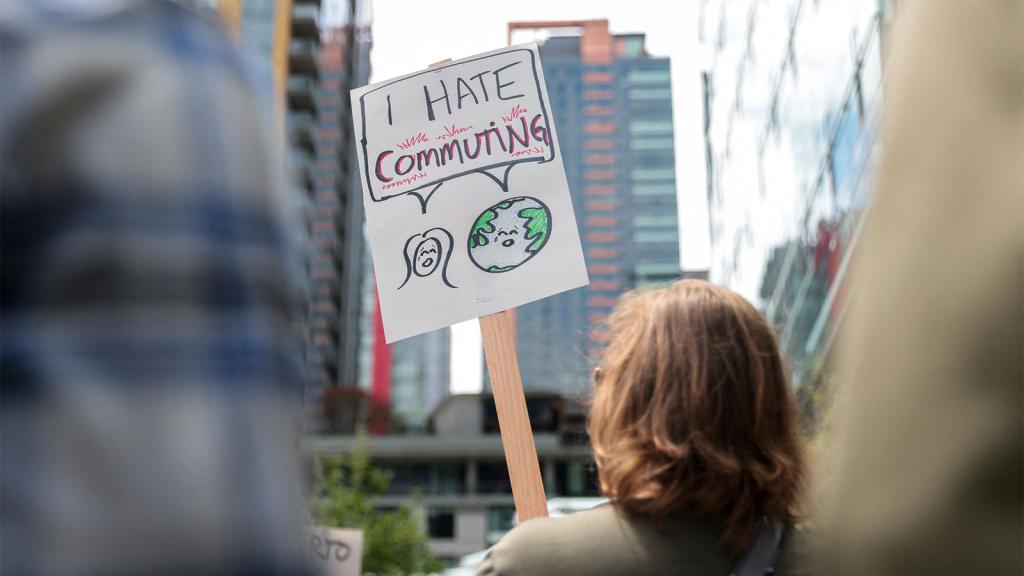Send your question to Umbra!
Q. Dear Umbra,
My husband and I make monthly trips to Target for family staples — vacuum bags, dental floss, laundry detergent, etc. I loathe Target. Is there a good excuse, such as “it’s better for the environment,” to get such things sent to us from Amazon.com?
Heather
Arlington, Mass.
A. Dearest Heather,
Here we are, teetering on the brink of the annual holiday shopping frenzy. This year, Americans are expected to spend more than $586 billion, and retailers will make 20 to 40 percent of their annual sales. So your question is timely, though I assume you did not intend it as such. Unless of course you’re planning to give dental floss to your nearest and dearest.
Kudos to you and your husband for doing two smart things: You shop together, thus avoiding the wasteful Solo Car Trip, and you venture forth monthly for household supplies, instead of darting to the store as the floss runs out or the vacuum cleaner overflows. Bundling passengers and errands is efficient, and a good way to reduce your impact.
Would shopping online be even better? Yes. No. Maybe. The jury was out when I wrote about online shopping a few years ago (twice!), and it seems the jury has found a really good sandwich shop. This, it turns out, is a tough call.
Let’s look at the situation. When you go to a store, you drive. You visit a building that uses electricity and takes up space to sell goods that have been shipped from a warehouse. You drive home. When you buy online, your product is also shipped from a warehouse, but this time it goes right to your house. Magically efficient, right?
Not so fast. More often than not, the delivery in question arrives in a box that’s 10 times too big. Sometimes with bubble wrap! Wasteful packaging is a concern here, as are e-commerce data centers, which are enormous energy-suckers. Here’s the real trouble: In both scenarios, distance varies. Product weight varies. Vehicle efficiency varies. Packaging varies. So you can see why the jury has tucked into a few delicious turkey subs and won’t be seen again anytime soon.
Some studies do support online shopping, but inconclusively. One from Carnegie Mellon found that shopping online led to 30 percent less energy use and carbon emissions! But that study looked at only one site, Buy.com, which is a partner of the university — and which did not have its own distribution centers. An earlier study [PDF] from the same institution also gave the advantage to e-commerce, with the revealing caveat that “By altering … critical parameters, e-commerce can be found to be more or less costly than the traditional system.” A third study, written by the Swedes and cited by the Brits, found online shopping better too — but only if it replaced 3.5 trips to the store.
A bit muddy, as you can see. But one thing is clear: Online shopping is on the rise. Americans spent $202 billion online in 2011, a number that’s expected to grow to $327 billion by 2016. This year, for the first time, more than half of Americans will do some holiday shopping online, says the National Retail Federation. So when that siren song calls, promise me you’ll do two things: Cluster your purchases to avoid excess packaging and extra shipments, and plan ahead so you don’t have to overnight your items. Floss does not need to fly.
But Heather, I believe your Target vs. Amazon showdown overlooks an important middle ground. Big-box stores including Target make commitments to sustainability, but they still leave a vast footprint. (This eco-ranking gives them all a rating of red, or “worst.”) Amazon has its own issues, and has faced pressure from shareholders to reveal its climate impacts.
How about buying your goods locally instead? A local market, co-op, or even regional grocery store chain should have what you need, your money will stay at least vaguely nearby, and you might find it less soul-sucking than your current treks. If you do go online, look for sites that are less corporate and closer to you, too. We’ve all heard a lot about “championing small businesses” lately — there’s no better way to do that than with your dollars.
Keep in mind that the way a product is made — where, and how, and from what materials — is just as important as how it gets into your hot little hands. Why, you could even make your own detergent! And then get crafty with your garbage! Now that’s a holiday frenzy I can get behind.
Thriftily,
Umbra




